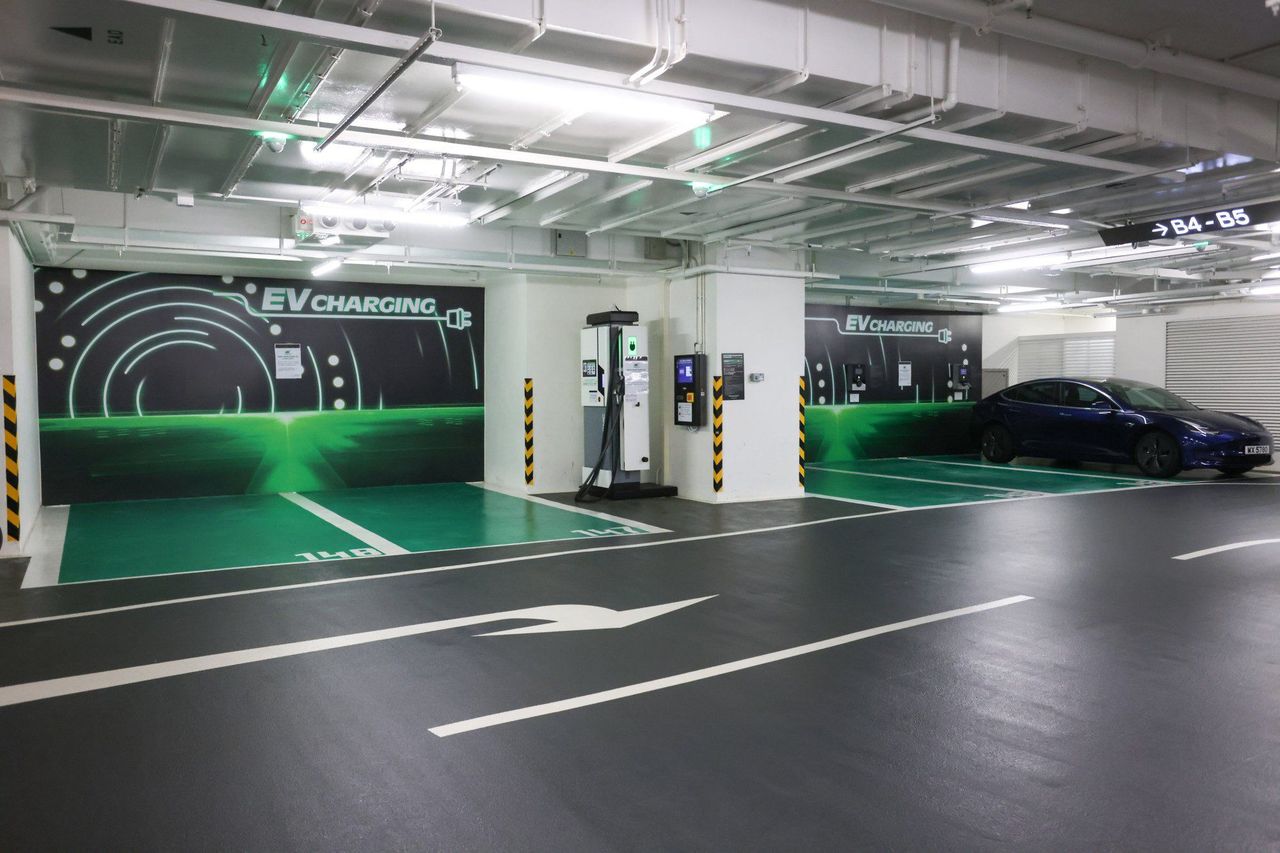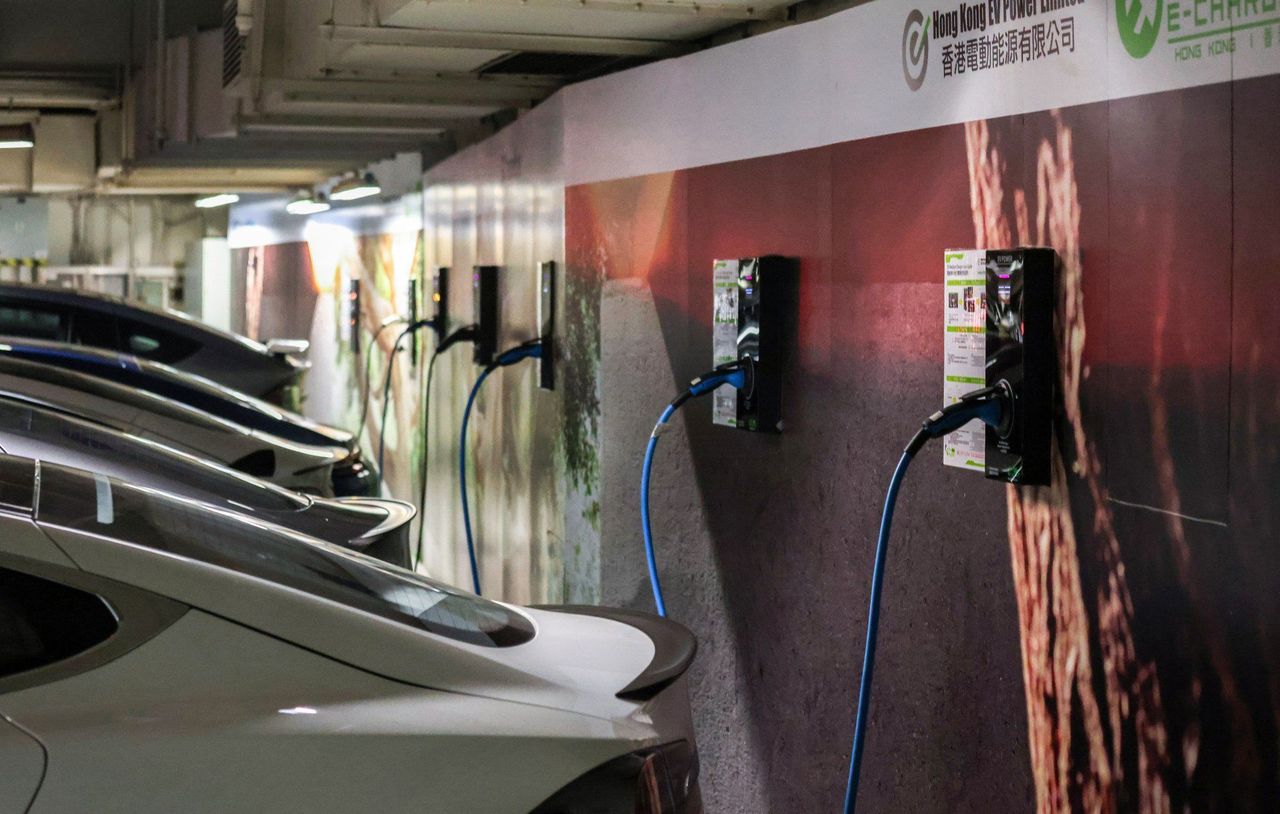Hong Kong News

Hong Kong aims to add 7,000 electric vehicle charging stations by 2025
Authorities have raised their target for the number of electric vehicle (EV) charging stations at Hong Kong government buildings, aiming to install an additional 7,000 facilities before 2025 in an effort to phase out gas-powered and hybrid private cars.
In a paper submitted to the Legislative Council on Monday, the government pledged to provide additional parking spots with EV chargers as part of its five measures to reduce carbon emissions.
A previous target of introducing 5,000 charging facilities by 2025 was fulfilled. As of September 2022, there were about 5,300 EV chargers in Hong Kong, including 2,200 located in government facilities.
 An electric vehicle (EV) charging station at a shopping centre in Causeway Bay.
An electric vehicle (EV) charging station at a shopping centre in Causeway Bay.
“The transport sector … was the largest air pollution source,” the Environment and Ecology Bureau said in the paper. “The exhaust emissions of motor vehicles are the main cause of roadside air pollution.
“Promoting the adoption of new energy transport has been one of the major strategies of the government to improve air quality.”
The chargers will be added to all new government buildings, supplying power to private cars, motorcycles and light goods vehicles.
Other measures mentioned in the paper include testing hydrogen fuel cell buses and heavy vehicles in 2023, testing electric ferries by 2024, conducting trials for at least 180 electric commercial vehicles and introducing about 700 electric buses and 3,000 electric taxis by 2027.
According to the Climate Action Plan unveiled in 2021, Hong Kong authorities are aiming to cut carbon emissions by half of levels in 2005 before 2035 and attain carbon neutrality by 2050.
In last year’s policy address, Chief Executive John Lee Ka-chiu said the government would cease registering new fuel‑propelled and hybrid private cars in 2035 or earlier.
Tax breaks introduced in 2018 have been a big pull for Hongkongers switching to EVs, and Tesla has remained well ahead of its competitors by providing customers ample charging points.
More than half of newly registered private cars were EVs last year, comprising 19,795 vehicles.
Secretary for Environment and Ecology Tse Chin-wan last week said the measures taken so far had begun to yield results.
 More than half of newly registered private cars were EVs last year.
More than half of newly registered private cars were EVs last year.
“We will continue to devote resources to promote trials and adoption of various electric modes of transport, including buses, light buses, taxis, goods vehicles, and ferries,” he told lawmakers.
Lawmaker Gary Chan Hak-kan said Tesla had already installed charging stops in Hong Kong, so the government should instead introduce more stations for other brands.
“The commercial decision by other brands not to build charging stops themselves has led to poor sales of such vehicles,” he said. “Charging is the primary consideration when buying an electric car.”
Out of the 8,454 EVs registered in October last year, 7,252 were Tesla cars.











